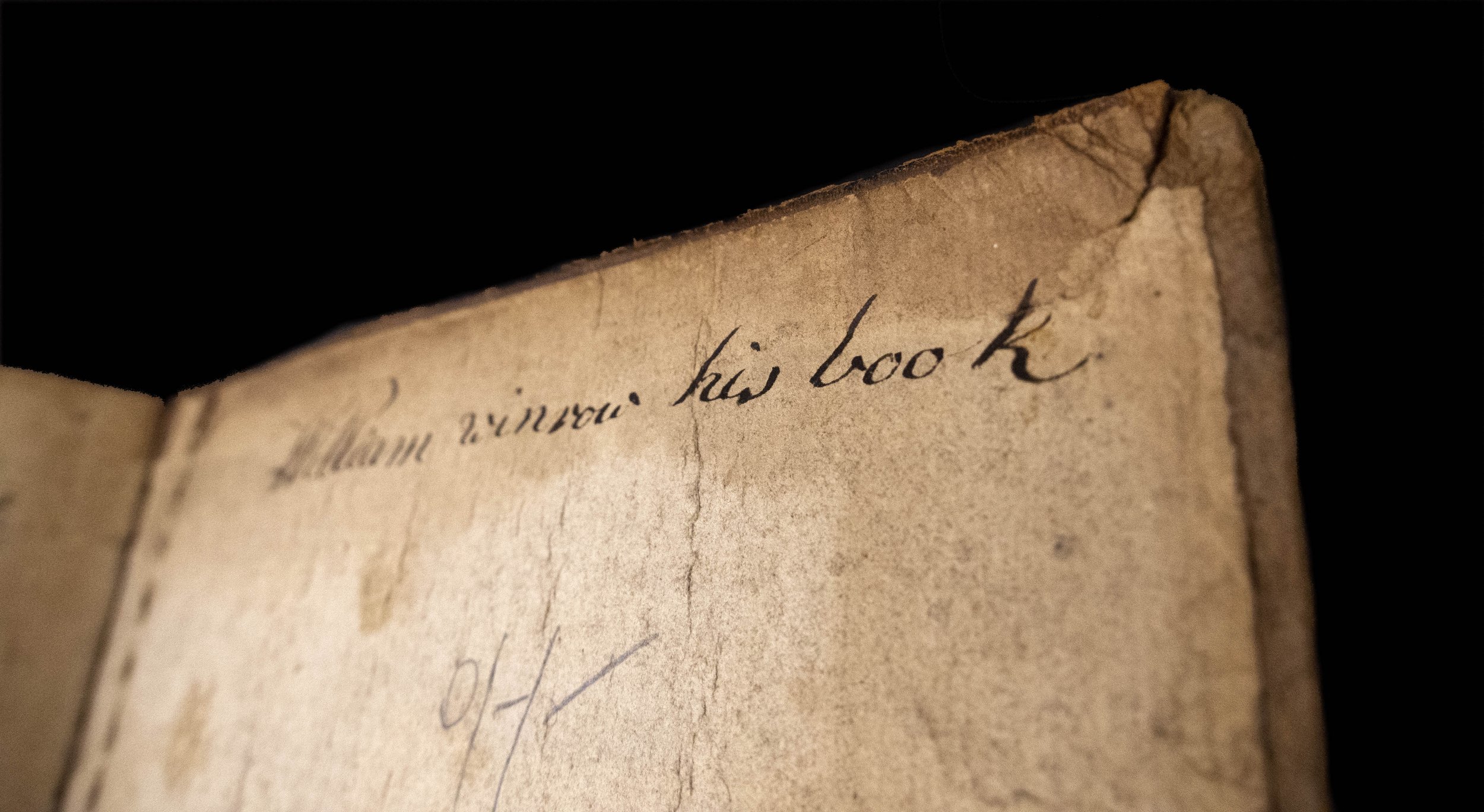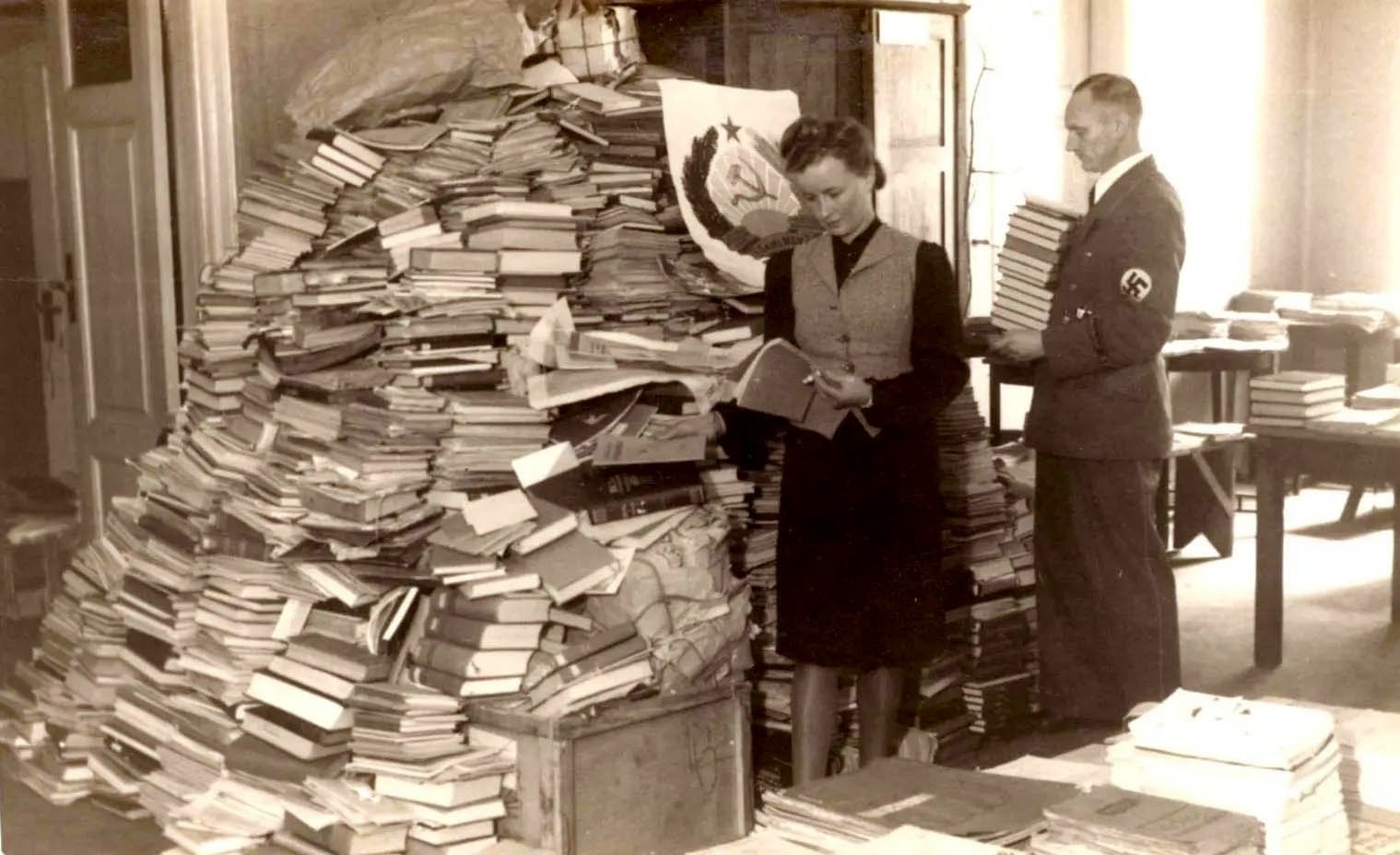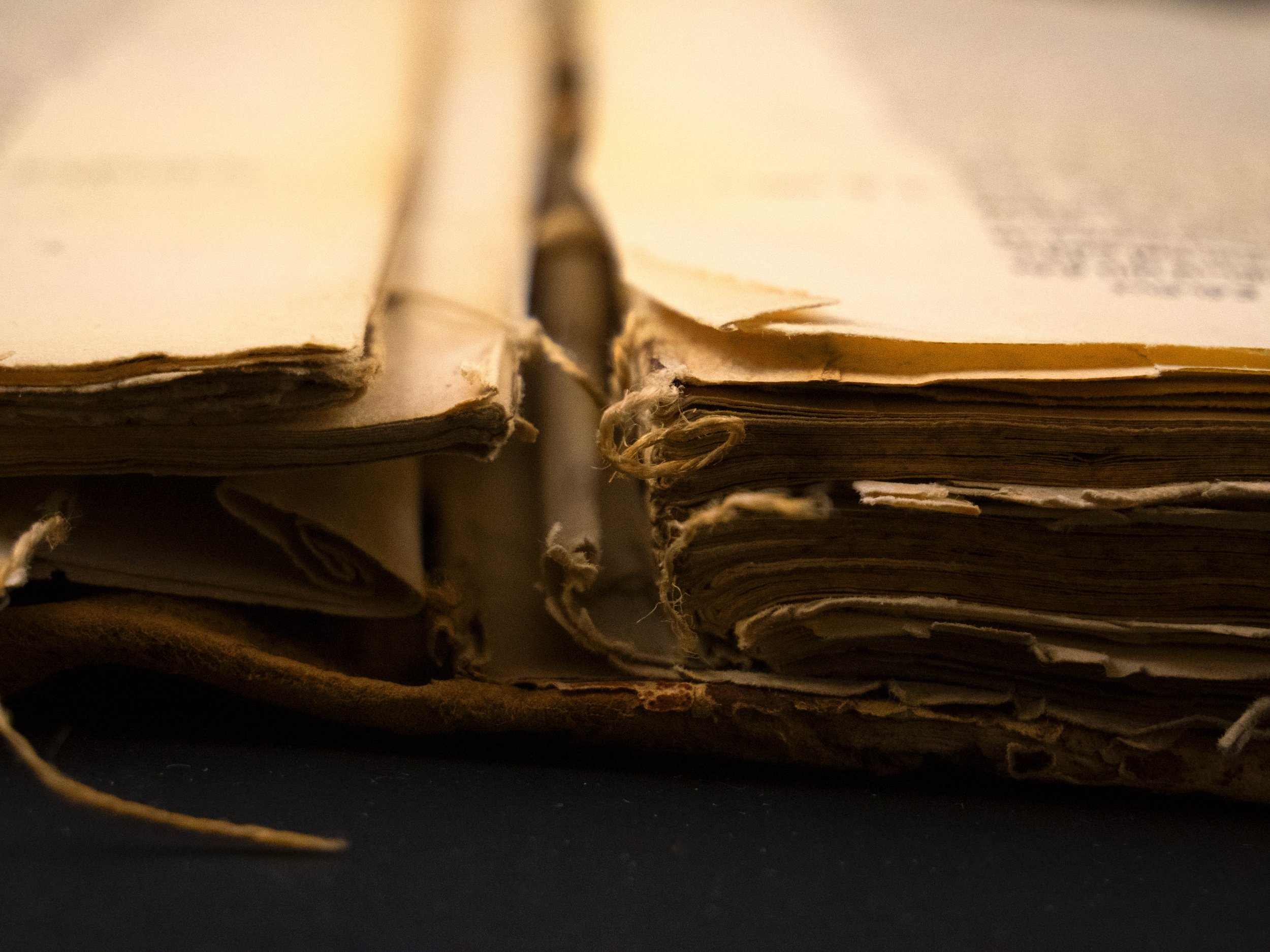
the Initiative + guidelines
acquiring the collection
The Rare Books Collection was contemporaneous with the founding of the JPL in 1914. Yehuda Kaufman Even-Shmuel, (1886-1976) one of the library’s co-founders with Reuben Brainin, travelled periodically to New York and Philadelphia to purchase older Judaica from booksellers to build our collections of canonical works, rabbinics, and Hebrew grammars. In 1914, the JPLs collection of 449 books were primarily Yiddish: the idea was to develop a broad spectrum of volumes in all the languages Montreal Jews needed to thrive: Hebrew, English, and French made up the other texts, but as a polyglot scholar of both religious and secular works, Kaufman’s primary interest was to collect works in Hebrew that could not be found elsewhere in Canada.
the offenbach depot
Reval, Estonia, Book registration carried out by the ERR. Yad Vashem, ID: FA1 73/34_77346
Shortly following the Second World War, the Offenbach Archival Depot acted as the central collecting and distributing point of books and other cultural materials in the American Zone of Germany. The organization Jewish Cultural Reconstruction Inc., an umbrella organization that included leading Jewish Studies scholars, identified collections and, where possible, returned them to institutions that continued to exist such as the Bibliotheca Rosenthaliana in Amsterdam. The remaining materials whose owners could no longer be traced, were distributed to institutions and Jewish communities worldwide, including to the Canadian Jewish Congress. The Canadian Jewish Congress, in turn, distributed materials within Canada. The JPL was the largest beneficiary of this donation, having received around 1800 volumes.
the collection today
It was only in 2016 that the collection was fully catalogued (except for some Hebrew manuscripts with missing title pages) and made accessible on the JPL’s catalogue. Thanks to generous and continued support from Dr. Michael Paul, z”l (1954-2024), a former Montrealer and associate professor of medicine at Memorial University, we were able to index and describe these volumes to coincide with the JPL’s centennial in 2014; that same year, we curated a month-long exhibit entitled “A Roomful of Dwellings”, and initiated a programme of rare book workshops with elementary and high school students. These workshops consisted of 60-90 minute sessions that described the history and development of Jewish printing, along with the narratives culled from the research the librarians have done on the authors of these works and the compelling story behind their printing. These workshops have since expanded to include synagogues, churches, universities, CEGEPS, museums, community centres, seniors’ residences, and other groups. In 2017, the JPL co-curated an exhibit and a series of workshops with the Jacob Lowy Collection of Library and Archives Canada entitled “Decanting Memory: 500 Years of Jewish Printing”.
The collection spans a variety of areas but commentaries, rabbinics, early grammars, canonical works (Talmud, Mishnah, Zohar), philosophy, and history predominate. We’ve applied the shorthand term “Rare Books” to distinguish them from other special collections of the library and have arbitrarily used the range of 1481-1899 for similar reasons: other collections in the JPL consist of volumes older than 1899 but current space limitations compel us to keep the Rare Books Collection as a distinct collection for the purposes of practicality. Many of the books are indeed rare by any standards; others are rare relative to other special collections in the library.
We’ve selected an initial set of texts based on the books we have been using in our ongoing mobile workshops. Others will be added periodically.
guidelines for use and donation
The Rare Book collection is for use only under the supervision of library staff. It cannot be browsed—interested parties must book an appointment with our Archives + Special Collections team. You must have a confirmed appointment with the Reference Archivist prior to your arrival, and you will also be required to provide photo ID to confirm your identity and the appointment.
The number of books or manuscript boxes that may be used at any one time is limited, and at the discretion of library staff.
Food and drinks are prohibited in the consultation area. All bags and other personal effects (including cell phones) must be left with the reference librarian. You may bring your laptop; electrical outlets are available.
Materials must be handled with extreme care. In some cases, the reference librarian may need to handle the item for you.
Books and manuscripts must be returned to the librarian on duty when you leave the room.
Reproduction services are available at a charge. Please consult a member of the reference or Archives staff for pricing and other details. Please note that many items in the collection are too fragile for reproduction.
If you are interested in donating books printed between the 15th-19th centuries, please contact one of the librarians at rarebooks@jplmontreal.org.


